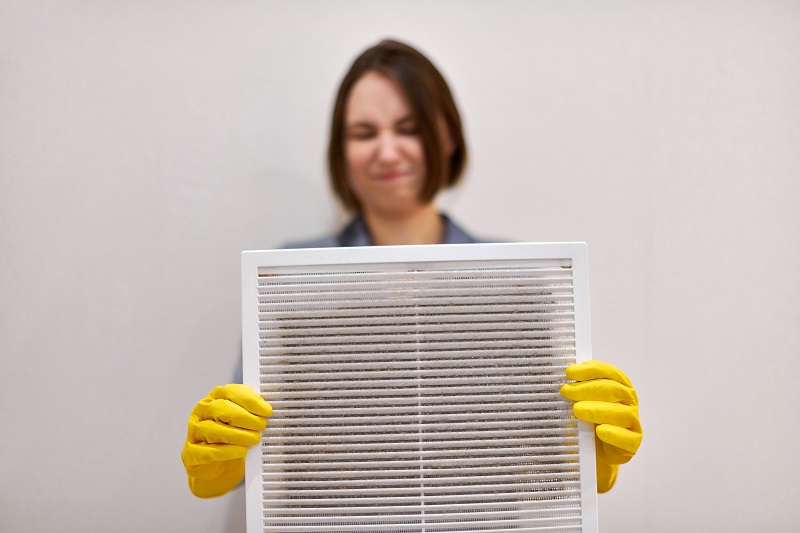Breathe Easy: Your Guide to Choosing and Changing Home Air Filters
Your home’s air quality is a critical component of your family’s health and comfort. While you might not see them, air filters work diligently behind the scenes, capturing dust, pollen, pet dander, and other airborne pollutants.
But here’s the catch: a dirty filter can actually do more harm than good. It can restrict airflow, strain your HVAC system, and even worsen indoor air quality. Wayne Price Heating and Air Conditioning is here to help you understand the importance of choosing the right filter and changing it regularly for a healthier, more comfortable, and energy-efficient home.

Why Air Filters Matter: More Than Just Dust Bunnies
Air filters are essential for trapping airborne contaminants that circulate through your HVAC system. They play a vital role in:
- Improving Indoor Air Quality: By capturing dust, pollen, pet dander, and other allergens, filters help create a healthier breathing environment, especially for those with allergies or respiratory sensitivities.
- Protecting Your HVAC System: Filters prevent dust and debris from accumulating on your system’s sensitive components, improving its efficiency and longevity.
- Reducing Energy Bills: A clean filter allows for optimal airflow, so your system doesn’t have to work as hard to maintain comfortable temperatures. This can lead to lower energy bills and increased energy efficiency.
Choosing the Right Filter: Finding the Perfect Fit
Not all air filters are created equal. They come in various types and sizes with different levels of filtration efficiency.
- MERV Ratings: The Minimum Efficiency Reporting Value (MERV) rating indicates a filter’s effectiveness in trapping particles. Higher MERV ratings mean better filtration but may also restrict airflow.
- Filter Types:
- Fiberglass Filters: These basic filters offer minimal filtration and need frequent replacement (every 30 days).
- Pleated Filters: Made from synthetic materials, these filters offer better filtration than fiberglass and last longer (1-3 months).
- HEPA Filters: High-Efficiency Particulate Air (HEPA) filters are the most effective, capturing even the smallest particles, but they may require professional installation and can restrict airflow in some systems.
Consult with Wayne Price Heating and Air Conditioning to determine the ideal filter type and MERV rating for your specific system and needs.
How Often Should You Change Your Filter?
The general rule is to change your air filter every 30-90 days. However, several factors can influence the ideal replacement frequency:
- Type of Filter: As mentioned earlier, different filter types have varying lifespans.
- Household Occupants: If you have pets, allergies, or live in a dusty environment, you may need to change your filter more frequently.
- System Usage: During periods of heavy HVAC usage, like the hot Texas summers, it’s advisable to change your filter more often.
Signs Your Filter Needs a Change
- Reduced Airflow: If you notice a decrease in airflow from your vents, it could be a sign that your filter is clogged and needs replacing.
- Dust Buildup: Excessive dust around your home or on vents can also indicate a dirty filter.
- Increased Energy Bills: If your energy bills are higher than usual, a clogged filter could be the culprit.
The Wayne Price Heating and Air Conditioning Difference
We’re more than just an HVAC company; we’re your partners in creating a comfortable and healthy home environment. Our experienced technicians can help you choose the right air filters, provide professional installation, and offer regular maintenance plans to ensure your system operates at peak efficiency.
Breathe Easy, Breathe Healthy
Don’t let dirty air filters compromise your indoor air quality and energy efficiency. Contact Wayne Price Heating and Air Conditioning today for expert advice and service you can trust.
